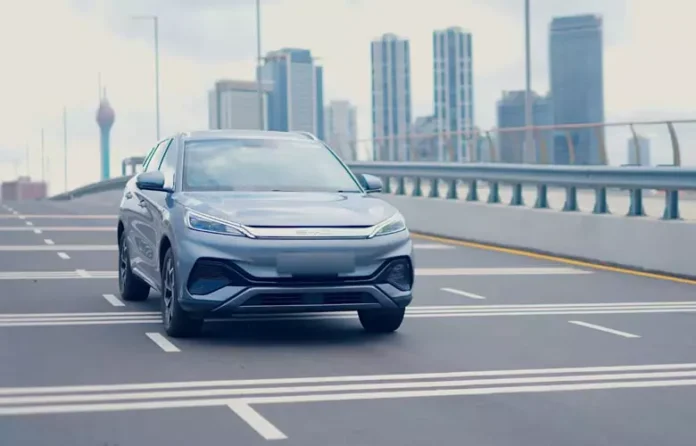The Sri Lankan government has launched a full-scale forensic audit into the controversial importation of electric vehicles by a local agent of Chinese automaker BYD, following allegations of under-invoicing and misrepresentation in Customs declarations.
The probe will scrutinize all relevant documents and import records submitted by the company over several months, even as previously cleared vehicles of the same model continue to raise questions.
A senior Treasury official confirmed that the forensic audit will be carried out by a special team in collaboration with the Department of Customs. The scope of the audit includes not only the latest batch of detained vehicles but also all earlier imports of the same model that were cleared and sold to buyers across the country.
In a parallel move, the government has sought the expertise of the University of Moratuwa’s engineering faculty to carry out a technical investigation to verify whether the disputed vehicles match the declared specifications and classifications provided during the clearance process.
The controversy erupted when a consignment of BYD electric vehicles, imported under the classification of “motor cars,” was held at Colombo Port after Customs suspected a possible misclassification. Preliminary investigations suggested that the vehicles might actually fall under a different classification, potentially attracting higher import duties.
Adding another layer to the saga, Customs and Finance Ministry officials are now examining whether the importer had followed the same practice with previous consignments and whether duties were accurately paid. Dozens of units of the same model have already been cleared and sold in the domestic market.
Analysts say this raises a critical legal and policy question: Can the government apply retrospective tax claims or reclassifications on vehicles that were previously cleared and sold under existing approvals?
Legal experts note that retrospective tax application is a grey area under Sri Lankan customs law and could lead to significant public backlash or legal challenges, especially from buyers who had no role in the import process.
Moreover, the case has cast a spotlight on a common practice in the global automotive trade—where manufacturers, especially from China, tailor vehicle specifications to suit importer demands.
If it is established that the vehicles were specially configured for the Sri Lankan market, it may undermine allegations of deception and instead point to potential policy or procedural loopholes in classification.
However, the government remains cautious. “We are not accusing any manufacturer at this stage. But if specifications were altered to fit a lower tax bracket, that could have serious consequences under anti-avoidance laws,” a senior Customs official said.
The incident has also triggered widespread media and public debate, with critics accusing authorities of failing to exercise due diligence during the earlier clearance of similar vehicles.
Officials stress that any punitive action will be based strictly on evidence from the audit and technical investigation, with recommendations to improve classification processes and strengthen post-clearance audit mechanisms.
Meanwhile, buyers of the cleared vehicles wait anxiously, fearing possible consequences if the government attempts retroactive revaluation or seizure.
